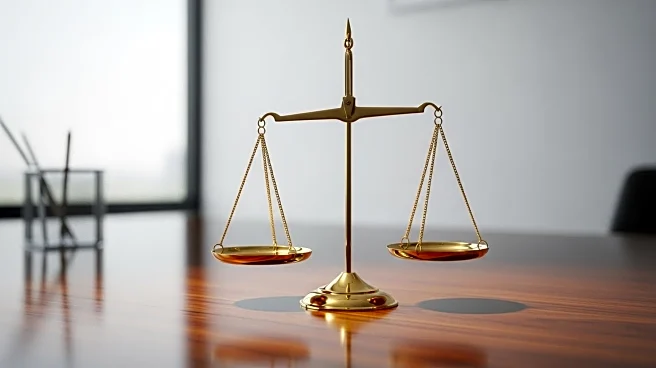What's Happening?
President Donald Trump has moved to dismiss Federal Reserve Governor Lisa Cook, citing allegations of mortgage fraud. The Department of Justice, through Solicitor General D. John Sauer, has argued before the Supreme Court that this action would not lead to a 'financial market disaster.' The DOJ's stance is that recognizing the President's authority to remove governors for financial misfeasance does not compromise the Federal Reserve's policy independence. The allegations against Cook involve claims of mortgage fraud related to her listing two properties as her primary residence before her appointment to the Fed in 2022. Cook has denied these allegations. Her attorneys argue that Trump's actions threaten the independence of the Federal Reserve, as the charges are based on conduct predating her service on the Board.
Why It's Important?
The case highlights the tension between presidential authority and the independence of the Federal Reserve. The outcome could set a precedent for how much influence a sitting president can exert over the Fed, potentially affecting its ability to operate independently. If the Supreme Court sides with Trump, it could embolden future presidents to remove Fed officials for reasons perceived as politically motivated, which might undermine the institution's credibility. Conversely, if Cook's position is upheld, it could reinforce the Fed's autonomy, ensuring that its decisions remain insulated from political pressures. The financial markets are closely watching the case, as any perceived threat to the Fed's independence could lead to instability.
What's Next?
The Supreme Court's decision on whether to allow Trump's dismissal of Cook to proceed will be pivotal. If the court grants a stay, it could signal a shift in the balance of power between the executive branch and independent agencies like the Federal Reserve. The decision could also influence how future allegations of misconduct are handled within such institutions. Stakeholders, including financial markets and political leaders, are likely to react strongly to the court's ruling, which could have lasting implications for the governance of the Federal Reserve.
Beyond the Headlines
The case raises broader questions about the ethical and legal standards for public officials. It also touches on the cultural expectations of transparency and accountability in government roles. The allegations against Cook, if proven, could lead to discussions about the vetting process for high-level appointments and the safeguards needed to prevent conflicts of interest. Additionally, the case could influence public perception of the Federal Reserve's role and its relationship with the executive branch.








